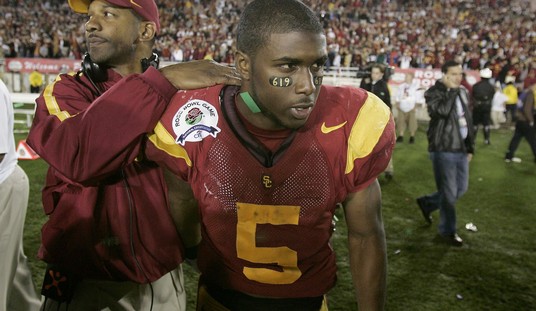While watching the above trailer for Amazon’s Transparent, I was struck by the tagline, “Love is unconditional.” In the context of a show about a transgender father who comes out to his grown children, the idea seems clear. If his children love him, they won’t care that he thinks he’s a woman.
Is that true though? Do I need to accept anything my loved ones say, think, or do for them to remain loved ones? Does love require universal acceptance?
The popular notion of “unconditional love” emerges from post-modern moral relativism. It is an interpersonal application of the idea that everything is equally valid and equally true. In that context, judgment has become hate. The rhetoric of the gay-rights movement, and of the broader anti-rational Marxist culture, leans heavily on this idea. One cannot disagree with the gay orthodoxy without being labeled a hater. So it makes sense that Amazon would remind us, in their marketing for a transgender drama, that love is supposedly unconditional.
We’re dealing with a particularly insidious lie that cheapens love by transmuting it from a value-based emotional response to an autonomic pleasantry. Put another way, unconditional love is nothing special. If love is unconditional, then anyone deserves it. If anyone deserves it, then the particulars of an individual’s behaviors, beliefs, and values do not matter.
Imagine how your significant other would react if, upon asking why you love them, you replied with, “No reason.” Imagine they pressed, and you expounded with, “I love you the same as I would love anyone. It doesn’t matter to me who you are, what you think, what you do, or what you believe or stand for. I love you in spite of you, as I would love anyone in your place.”
How would that go over?
Ironically, the unconditional love crowd typically punctuate their rhetoric with the sentiment “love people for who they are.” But that doesn’t make the least bit of sense. You can’t both love someone for who they are and love them unconditionally. Their identity is a condition. They are not someone else. From this we quickly realize that the real exhortation of “unconditional love” is to accept whatever taboo, be it homosexuality, transgenderism, or any of a hundred other things.
Unconditional love is a particularly vicious argument from intimidation, as we’ll explore on the next page.
If you do not accept everything someone thinks, says or does, then you cannot claim to love them, the notion goes. But that’s never been true of any human relationship. Who accepts everything about another human being? What mother wants nothing to change about her son? What wife wants nothing to change about her husband? What teacher seeks to maintain his student’s status quo?
Indeed, true love drives continual growth and improvement. True love responds to values sought and attained, to principles manifest in action.
I love my wife for who she is, not for whatever she happens to be, but for what she believes and how she lives her life. Her values align with my own. I could not love her otherwise. If I claimed to, it would be a lie.
When we consider the relationship between parent and child, the notion of unconditional love may seem to apply. Surely, we love our children in spite of their mistakes, disrespect, and bad behavior. But our love does not move us to accept those qualities. On the contrary, our love motivates discipline with the intent to guide them toward an adulthood marked by autonomy, responsibility, and honor. We don’t want them to merely be accepted. We want them to be respectable. We want their life to meet conditions which warrant rational approval from others.
Of course, there are deviants. There are mothers who “love” their sons and think that means overlooking bad behavior. The same happens between spouses. But these are not healthy relationships. The mother who coddles her wayward son is not doing her job. She is not loving him in a meaningful way, to good effect. The wife who puts up with her husband’s infidelity and abuse is not loving him by doing so. A teacher who dishes out unearned grades cannot be said to care for their student.
Love requires judgment. Love upholds standards. Love sets conditions. When our loved ones fall short, we correct them in love. If we didn’t care, we wouldn’t bother. In that sense, what the “unconditional love” peddlers sell is not actually love, but a miserable and toxic indifference.








Join the conversation as a VIP Member